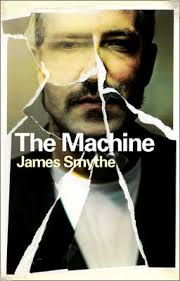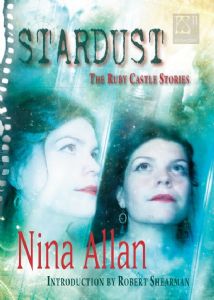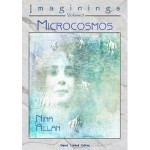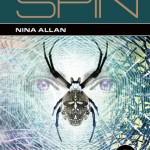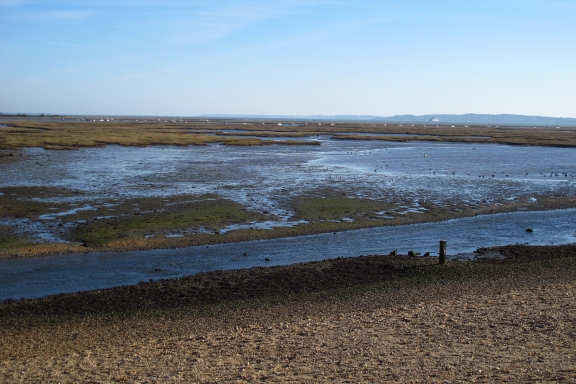In his Guardian review of the latest issue of Granta, which samples the work of the 2013 line-up of the Best of Young British Novelists, Theo Tait has this to say:
Best of Young British Novelists 4 doesn’t, as a whole, inspire about the future of the British novel. It offers some exceptional writing, but mostly solid, old-fashioned storytelling or hit-and-miss, boil-in-the-bag postmodernism. If you look at the selections from 1983 onwards, you see a gradual but unmistakable tailing off of talent as the decades progress. I’m afraid that this list continues that trend.
Tait has already told us earlier in his article that he is familiar with ‘at most half of them in any detail.’ The fact that he then goes on to name and approve ten out of the twenty writers seems to suggest an odd thing: that he’s said ‘yeah, OK’ to those writers whose work he already knows fairly well and thus feels he can judge – and then disregarded the rest simply because they’re just names to him, glimpsed perhaps in the reviews section of a broadsheet or two and now set before him to judge on the basis of the one short story or novel extract they’ve produced for Granta BOYBN 4.
This is something we all do. There are instances where awards shortlists or ‘best ofs’ turn out to be so inadequate or misjudged that a degree of outrage seems not just inevitable but necessary. But in the main this is not the case. Rather what you get when much-anticipated shortlists are finally published is a vague feeling of disappointment, which when examined more closely turns out to be nothing more interesting or worthy than the sense that ‘yes, but I would have liked this list better if writer A, B or C had been on it instead of E, F and G.’ There’s been a fair amount of talk already about the omissions from the new Granta list. Theo Tait himself names Jon McGregor as his notable exclusion and whilst there is much to admire in the work of Zadie Smith and Adam Thirlwell, the practice of naming writers twice as BOYBNs makes no sense to me and never has done – Zadie Smith seems in no imminent danger of being forgotten or underexposed, and surely all the judges are doing by re-selecting her is denying a place to another writer who would derive far greater benefit from being included, the amazing Jon McGregor just for example? It’s a shame, I think, that they did this. But does the list as a whole demonstrate, as Tait laments, a gradual tailing off of talent from one decade’s choice to the next? I don’t think so.
Much of the thrust of Tait’s argument arises from the myth of the 1983 list, which is now more or less enshrined in the English literary consciousness as ‘exceptional’. But how exceptional was it really? And have we seen, as Tait seems to be suggesting, a diminution in the rigour and articulacy of the prevailing literary discourse that decides such rankings? I think I’m going to argue the opposite.
But first, let’s take a more detailed look at that original line-up of BOYBNs from 1983. The ‘holy trinity’ of Barnes, Amis and McEwan are discussed and reminisced over as if their importance and literary influence is now a given, that these were the writers, the enfants terribles who revitalized the art of the English novel, who rescued British writing from its post-war parochialism and forced the Americans to sit up and take notice. But I’d argue that if Tait’s words about a gradual tailing off of talent have relevancy anywhere then it’s here with the trinity.
I reread McEwan’s early collection In Between the Sheets recently and it’s good. It also bears saddeningly little relation to the conventional establishment-pleasing works McEwan has produced in the last decade, publicly disowning much of his earlier output as ‘a youthful desire to shock’. How disappointing and how sad, to see a writer who once promised so much sell out so publicly. McEwan still can and still does write beautiful sentences – but by this stage in his career that should be a given, frankly. The truth is that McEwan hasn’t written anything even remotely challenging since Amsterdam.
Love him or loathe him, the young Martin Amis was a seething talent. Again, I reread his third novel Success a year or so back and much against my literary prejudices I found myself laughing aloud with pleasure, in public, at his verbal dexterity and malicious sarcasm. But Lionel Asbo, his most recent offering, I found so embarrassing a faux pas, so wide of the mark as both formal conceit and social comment that I had to stop reading it.
And what happened to the Julian Barnes who wrote the experimental novels Flaubert’s Parrot and The History of the World in 10 and a Half Chapters? His 2011 Booker-winning The Sense of an Ending was a pallid little book, prissy as fine needlework and with its one great startle moment entirely wasted, mislaid almost, amidst Barnes’s narrator’s worryingly irritating self-obsession.
Amis, McEwan and Barnes are only in their middle sixties, which hardly makes them Methuselahs especially these days, and yet they seem comfortable – determined, almost – to settle into the role of old men, reflecting on their glory days (could any book be more inappropriately self regarding than McEwan’s Sweet Tooth!) as radical young bucks and commiserating with an establishment they should and could still be rucking up. What they hell happened? Are they simply too successful now, too insulated by received opinion, to feel they can risk alienating their public by giving it a kick up the arse? What was McEwan thinking when he wrote that lily-livered apologia for Margaret Thatcher?
If the MAB triumvirate ever had a birthright, it has squandered it, and I find this sad, and disappointing. Of the rest of that ‘golden generation’, I personally find Pat Barker to be one of the most overrated writers currently lauded, William Boyd has settled for broadsheet approbation and the middle of the road, ditto Graham Swift and Rose Tremain. Anyone who heard A. N. Wilson on Radio 4 last week, bleating on about how Britain’s ‘unfettered’ social welfare system leads inevitably to the crimes of Mick Philpott cannot be anything but dumbfounded at the idea that Wilson’s particular literary voice bears relevance in any form today whatsoever.
I’d argue that only three of the class of ’83 have fulfilled their promise, which is a pretty poor percentage, considering the reputation the group as a whole continues to enjoy.
I can’t read Salman Rushdie – while his non-fiction is cogent and well argued, I find his fiction overwritten and mannered to the point of implosion. His recent memoir Joseph Anton also shows signs that he’s beginning to believe in his own entitlement, always a dangerous moment for a serious writer. There’s little question however that Rushdie is still that – a serious writer – and that he continues to explore and push the outer limits of his own abilities, which is the most important thing any writer can do.
Kazuo Ishiguro is often bracketed with Barnes, Amis and McEwan but I don’t think he should be. He’s a slower, more considering writer, a private thinker who’s always determinedly gone his own odd way. His books are unpredictable and strange, and each of them is different from the others. You get the sense while reading him that he’s still trying to work out what he’s about – which is a good thing, and so different from McEwan, whose whole mission now seems to be about proving to us how solid and beau-ti-ful and dependable, how securely grounded in the nineteenth century the English social novel can still be. I like Ishiguro because he takes risks. He’s a good writer – better than that he’s still an interesting one.
Christopher Priest will be just shy of seventy when his new novel The Adjacent is published later this summer, but in contrast with Amis and Barnes there’s no sign of his age in his mindset or in his fiction. Priest’s thirteen novels to date form a rising arc, a steady and discernible series of stylistic and thematic advancements from one book to the next. Priest does not harp on about how Britain is going down the tubes, nor does he endlessly reminisce about what life was like before the evil internet when Margaret Thatcher was on the throne. Rather, he examines the nature of lived reality itself, as well as the ways in which the novel as a form can still surprise, confound and elate us. His life’s work is still vigorous, still evolving, still under construction. You’ll never read a Priest novel and come away with the impression that he’s treading water, or marking time, or settling down. Priest has been notably excluded from much past commentary on the BOYBNs either because the established commentators can’t work out where he fits into the prevailing consensus or else they dismiss him, unread, as ‘that chippy bloke who writes science fiction.’ Yet I predict that a hundred years from now it’ll be Priest’s name that stands out from that group as the renegade talent, long after McEwan and Barnes and Boyd have been written into the margins.
The 1993 list produced some dead ends and some middle-of-the-roads (Nicholas Shakespeare, Esther Freud, Louis de Bernieres most of all and I’d maintain that Hanif Kureishi also is overrated) but it also produced Iain Banks, Will Self, Jeanette Winterson, Alan Hollinghurst, AL Kennedy and Lawrence Norfolk, six outstanding writers of true grit and demonstrable staying power – that’s twice the number we ended up with from 1983. And in 2003 Nicola Barker (one of the very best writers in Britain at this moment), Alan Warner, Dan Rhodes, Hari Kunzru, David Peace, David Mitchell and Andrew O’Hagan upped the strike rate still further. Just look at these writers and what they’re doing and try to argue that they’re less accomplished, exciting or relevant than the MAB trinity and I will counter that such an argument holds no water.
And so we come to this decade’s list, and far more disturbing to me even than his words about tailing off is what Tait says here:
It’s well known that British literary fiction seeks out the exotic, avoiding middle England in favour of immigrant communities, the more exciting past and urban Scotland. But the collection, I think, takes the tendency too far: less than half the pieces are set in Britain, and two of those are in apocalyptic variations thereof. Otherwise, it’s building sites in Dubai, army camps in Somalia, a sheep station in the Australian outback, the streets of Ghana.
Of course I was always going to be thrilled by the fact that more than a third of the writers on the new Granta list display in their work at the very least a passing interest in speculative themes. That gives us, let’s see, roughly six times as many SF writers as there were on the 1983 list and offers evidence – to me at least – of a more adventurous, experimental and yes, a more modernizing approach to what literature should and can be about. Equally thrilling to me though is the inclusiveness of this line-up – more than half of them women, more than half of them personally representative of the cultural and ethnic diversity of Britain today, Britain as the nation it is evolving into. Having writers on this list – young writers – who are willing and able to show us how rural China is dealing with the too-rapid influx of Western influences, or what it means to be Afropolitan? Surely we should feel invigorated by and intensely proud of such voices? Surely lamenting them as somehow ‘un-English’ is just, well, wrong? And what Tait’s doing attacking the choice of ‘urban Scotland’ as a choice of narrative setting for young British novelists I have no idea. As Scotland has produced much of the UK’s most muscular, radical, accomplished, relevant and downright exciting fiction in the past half century I’d deem his words as badly chosen, at the very least.
For myself, I’m particularly thrilled to see Helen Oyeyemi chosen as a BOYBN, because I think she’s one of the most talented young writers to come out of this country since Nicola Barker, and Evie Wyld, who writes so beautifully it makes me go grrrr. I’m well pleased to see Ned Beauman, too – that man writes like a demon and has, I feel, a glorious future ahead of him. I’ve long admired Sarah Hall and Steven Hall and Naomi Alderman, and I am loving Jenni Fagan’s The Panopticon. I’m looking forward to discovering Ben Markovitz and David Szalay, Kamila Shamsie and Xiaolu Guo, of whom I’ve heard great things.
My own notable exclusions (apart from Jon McGregor)? Those would be China Miéville and Scarlett Thomas. They’re only just forty and they’re both standout talents. Bend the age rules just a little bit, why dontcha..?
I feel for Theo Tait. He writes well and I always enjoy reading him, most especially because he’s outspoken and often contentious. Having to come up with something pithy and concise and accurate about the new Granta list in under twenty-four hours is not something I’d envy him. But dare I say I think he spoke too hastily this time, and with the wrong emphasis. The British novel is not in danger, nor are our young writers becoming less engaged or somehow less talented. The huge interest around the BOYBNs this year – an interest that far from tailing off grows stronger decade on decade – is surely proof of the hunger for books and the fascination with stories and ideas and narrative that still shapes and drives our cultural life. The writers on that list show that our cultural life, far from being in decline, is rapidly expanding in a multitude of directions.
